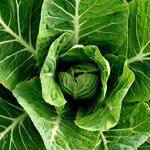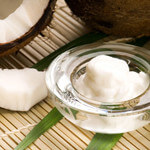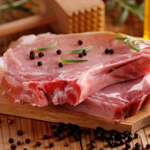Table of Contents
 Antioxidants are substances that guard your cells against the effects of free radicals – an oxygen molecule that has lost an electron and will, in an attempt to stabilize itself, try and steal an electron from a neighboring molecule. Free radicals are produced when our bodies break down food, but also by exposure to radiation, cigarette smoke, and other external issues. Either way, they are not something we want in our bodies; they can cause irreparable damage to cells, and have been linked to heart disease and even cancer.
Antioxidants are substances that guard your cells against the effects of free radicals – an oxygen molecule that has lost an electron and will, in an attempt to stabilize itself, try and steal an electron from a neighboring molecule. Free radicals are produced when our bodies break down food, but also by exposure to radiation, cigarette smoke, and other external issues. Either way, they are not something we want in our bodies; they can cause irreparable damage to cells, and have been linked to heart disease and even cancer.
Antioxidants, however, are absolutely something we want in our bodies. Regardless of whether the antioxidant is beta-carotene, lycopene, selenium, or vitamins A, C, and E, they all serve the same purpose: To combat free radical activity, which results in a healthier body that is less susceptible to common and serious diseases.
So, what are the most antioxidant-rich foods? Since most (if not all) fruits and vegetables contain at least some antioxidant activity, the following is a list – arranged according to antioxidant – of the absolute best foods in this regard.
Beta-Carotene
Beta-carotene is a carotenoid that is converted in our bodies into vitamin A, a vitamin with powerful anti-infection properties and which also helps to strengthen our bodies’ mucous membranes.
Best sources: Sweet potatoes, pumpkins, carrots and carrot juices, spinach, and kale.
Honorable mentions: Squash, watermelons, nectarines, peppers, beets, broccoli, asparagus, apricots, corn, cantaloupes, peaches, mangoes, tangerines, tomatoes, and pink grapefruits.
Vitamin A
The following foods contain vitamin A in general quantities (not just in the form of beta-carotene):
Best sources: Liver (including cod liver oil), dandelions, carrots, broccoli leaves, sweet potatoes, and butter (including ghee).
Honorable mentions: Spinach, pumpkins, eggs, apricots, papayas, mangoes, peas, and milk.
Lycopene
Lycopene, also a carotenoid, is known to prevent many forms of cancer and has also been linked to the prevention of diabetes, osteoporosis, age-related degeneration (including cataracts), and infertility in men.
Best sources: Gac, tomatoes, watermelons, pink and red grapefruits, chilli powders, and red cabbages.
Honorable mentions: Pink guavas, papayas, asparagus, parsley, persimmons, apricots, and rosehip purée.
Selenium
Like lycopene, selenium seems to contain impressive anti-cancer properties, and can also increase fertility in men.
Best sources: Blackstrap molasses, Brazil nuts, mushrooms, cereals, and eggs.
Honorable mentions: Fish products, especially crab, tuna, and lobster.
Vitamin C
Vitamin C is needed for a healthy and strong immune system. It also helps to combat colds and to improve moods.
Best sources: Kakadu plums, camu camu, acerola, seabuckthorn, mica muro, Indian gooseberries, rosehip, blackcurrants, blueberries, red peppers, parsley, kiwis, goji berries, broccoli, and elderberries.
Honorable mentions: Oranges, lemons, papayas, strawberries, kale, grapefruits, raspberries, tangerines, passionfruits, limes, mangoes, blackberries, tomatoes, and pineapples.
Vitamin E
Vitamin E, one of the most powerful antioxidants of all, has been linked to the prevention of heart disease, cancer, strokes, and even signs of aging.
Best sources: Wheat germ oil, sunflower oil, safflower oil, nuts, palm oil, leafy green vegetables (especially spinach), avocados, asparagus, and broccoli.
Honorable mentions: Kiwis, pumpkins, sweet potatoes, mangoes, tomatoes, rockfish, papayas, and lettuce.
Conclusion
If you’ve been paying attention to the above lists, you’ll probably have noticed that several fruits or vegetables keep reappearing time and time again, namely:
- Broccoli
- Tomatoes
- Kale
- Papayas
- Spinach
- Mangoes
- Blueberries
- Sweet potatoes
These antioxidant-rich foods are often considered “superfoods” (unusually nutritious foods) that can do wonders for your body if eaten regularly. Therefore, if you’re looking to improve your diet by eating more antioxidant-rich foods, then these are the foods to buy.






